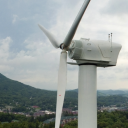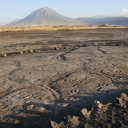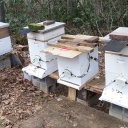
Q and A with Breece Robertson, Trust for Public Land
Sep 24, 2018
Breece Robertson ’00M.A., Geography and PlanningJob Title: VP and Director of Planning and GIS, as well as a TPL (Trust Public Land) fellowCom...

Appalachian Carbon Research Group awarded UNC System funding to develop accounting guidelines for forest carbon offset projects
Sep 18, 2018
Members of Appalachian State University’s Carbon Research Group (ACRG) will expand upon their multidisciplinary work through an inter-institutional ...

Community FEaST: Food Engagement and Storytelling
Sep 6, 2018
Community FEaSTTuesday, Oct. 16, 20184:30 - 6 p.m.Sanford MallThis event is free and the public is welcome.(A rain date is set for Thursday, Oct. 18, ...

2018 OFFSETS Workshop: Carbon Offset Possibilities for Small-Scale Forest Owners
Sep 5, 2018
The 2018 OFFSETS Workshop: Carbon Offset Possibilities for Small-Scale Forest OwnersFriday, Sept. 21, 20189:00 a.m. - 4:00 p.m.Plemmons Student Union,...

Empowering Scientific Engagement for a Global Solution and a Sustainable Future
Aug 30, 2018
Geraldine Richmond, Presidential Chair of Science and Professor of Chemistry at the University of Oregon will be the 2018 Morgan Science Lecture Serie...

Disappearing footprints in Tanzania
Aug 27, 2018
Appalachian researchers use photogrammetry to quantify erosion at ancient footprint site...

Appalachian’s Dr. Howard Neufeld contributes to global research on plant-damaging ozone pollution
Jul 20, 2018
A study published June 28 in the journal Elementa: Science of the Anthropocene that examines global ozone pollution trends has worldwide implications ...

‘Bee’ part of Appalachian’s honeybee monitoring system research
Jul 18, 2018
Over the past five years, a team of students and faculty members in the College of Arts and Sciences’ Department of Computer Science at Ap...

Racing on Solar Energy — ROSE's racing team
Jun 27, 2018
Team Sunergy’s 2018 crew taking Appalachian State University’s Cruiser Class solar car ROSE (Racing on Solar Energy) to two international competit...

Appalachian professor Dr. Steve Hageman receives Fulbright to study global warming’s effects in the polar Arctic
Jun 26, 2018
Dr. Steve Hageman, professor of geology in the Department of Geological and Environmental Sciences, which is housed in Appalachian State Univers...